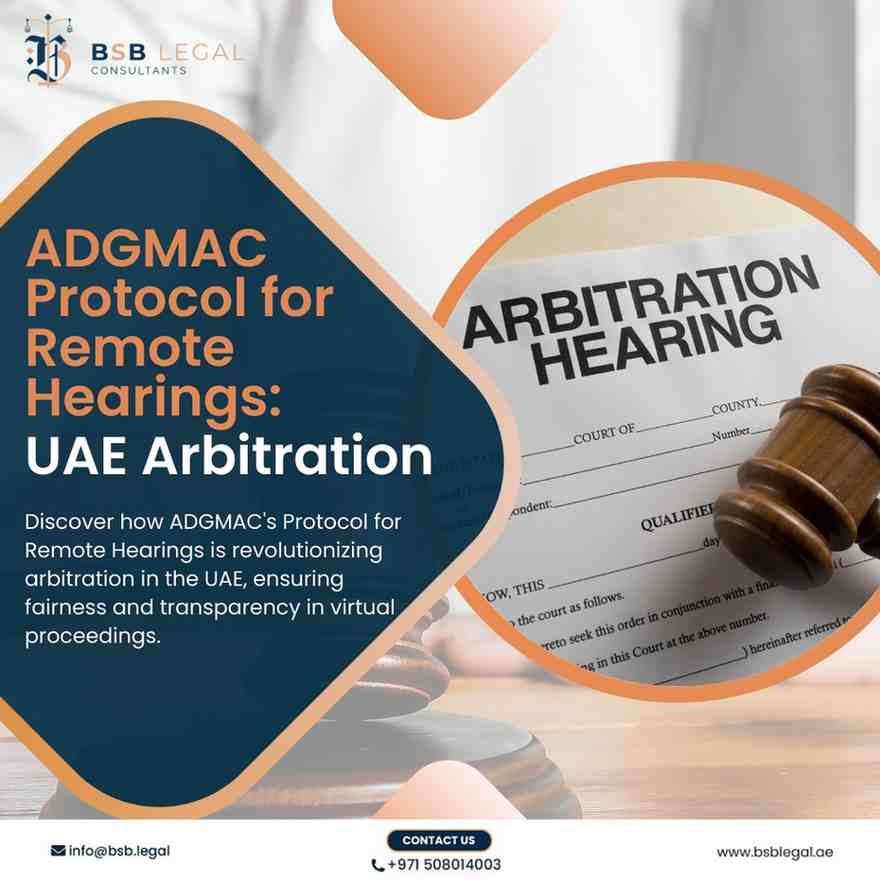


Discover how ADGMAC’s Protocol for Remote Hearings is revolutionizing arbitration in the UAE, ensuring fairness and transparency in virtual proceedings.
Amidst the transformation, the Abu Dhabi Global Market Arbitration Centre (ADGMAC) has emerged as a trailblazer in the arbitration field, introducing innovative solutions to adapt to the changing times. Now, how can parties and tribunals adapt to the new normal of virtual proceedings while upholding the principles of fairness and transparency? One such pioneering initiative is the ADGMAC Protocol for Remote Hearings, designed to facilitate seamless arbitration proceedings in a virtual environment. Here is the protocol set:
Traditionally, arbitration has been synonymous with in-person hearings, where parties, lawyers, and tribunal members gather in a physical courtroom to present their cases. With global challenges like the COVID-19 pandemic, the necessity for alternative dispute-resolution mechanisms has become increasingly clear. In response to this shifting paradigm, the ADGMAC took proactive measures to ensure that arbitration remains accessible and efficient in the face of adversity.
The Protocol, introduced in June 2021, serves as a comprehensive framework for conducting remote and semi-remote hearings in international arbitration. It covers various procedural and logistical considerations, focusing on crucial aspects like selecting electronic platforms. The role of participants, and measures to safeguard confidentiality. By providing clear guidelines, the Protocol empowers parties and tribunals to adapt to the new reality of virtual arbitration seamlessly.
At the heart of the Protocol lies a commitment to fairness, cooperation, and good faith. It emphasizes the importance of ensuring the enforceability of arbitral awards and maintaining confidentiality throughout the proceedings. To achieve these objectives, the Protocol outlines several essential components, including:
The Protocol supports both merits hearings and case management conferences, providing flexibility to meet the unique needs of each case. To ensure a fair and effective procedure, parties and tribunals are urged to modify the Protocol to meet the particular needs of each arbitration reference.
In an era dominated by digital technology, the Protocol recognizes the importance of selecting reliable and secure electronic platforms for remote hearings. It sets forth functional requirements for video-conferencing systems, document management, and real-time transcripts, laying the groundwork for a seamless virtual experience.
Clear distinctions are made between speakers and attendees, with provisions for objection to participants to uphold the integrity of the proceedings. Special attention is given to the examination of facts and expert witnesses. Measures are in place to ensure their testimony remains confidential and free from external influence.
Section I of the Protocol emphasizes the importance of maintaining the confidentiality of arbitration proceedings. Parties are required to take all necessary steps to protect the privacy and security of the hearing. Including agreeing on a detailed “cyber-protocol” to address data protection and security concerns.
Section T addresses the recognition and enforcement of arbitral awards resulting from remote hearings. To streamline enforcement processes, parties are encouraged to agree in writing that using remote video-conferencing is a fair and acceptable method for conducting hearings.
The ADGMAC Protocol for Remote Hearings represents a significant step forward in the evolution of arbitration in the UAE. By embracing technology and embracing change, the arbitration community is paving the way for a more accessible, efficient, and inclusive dispute resolution process.
